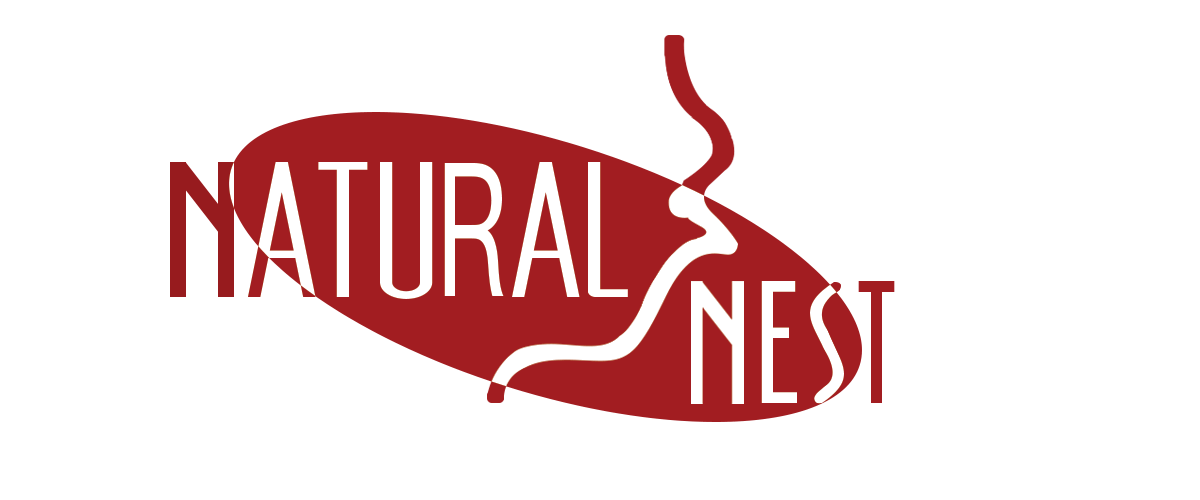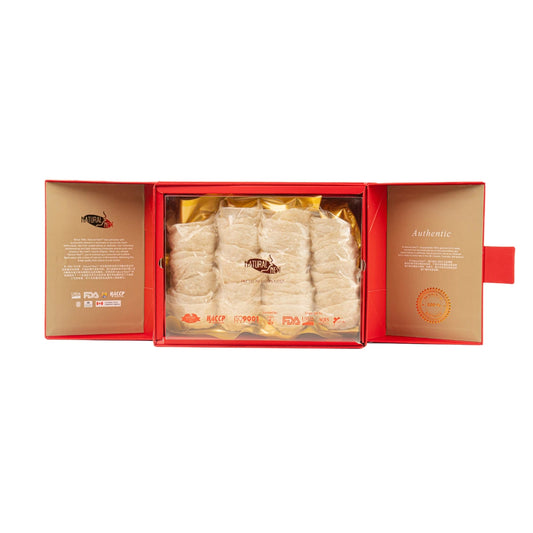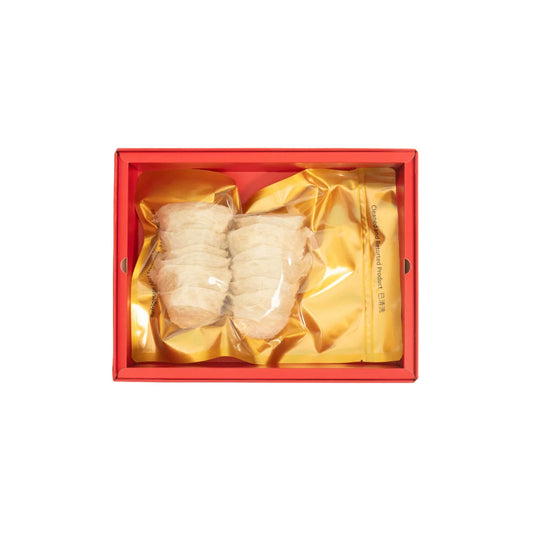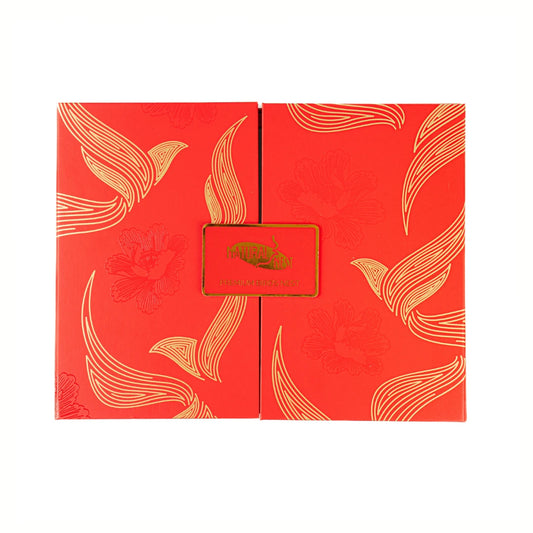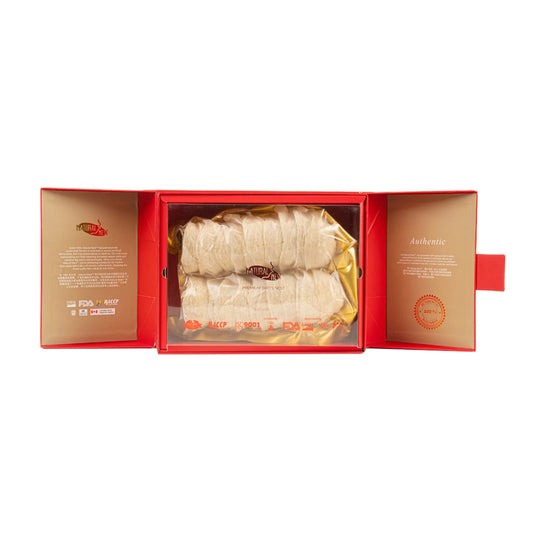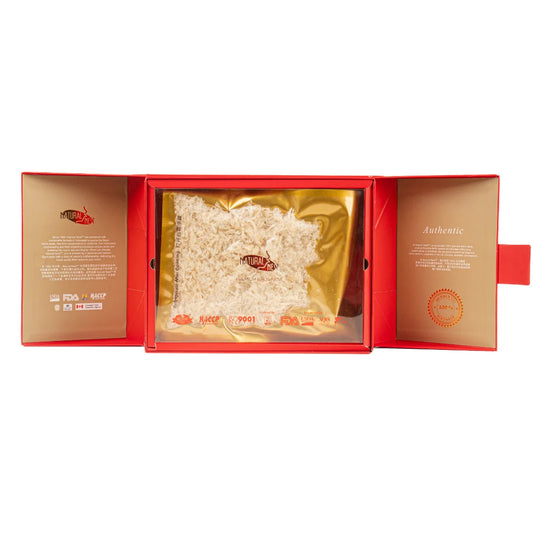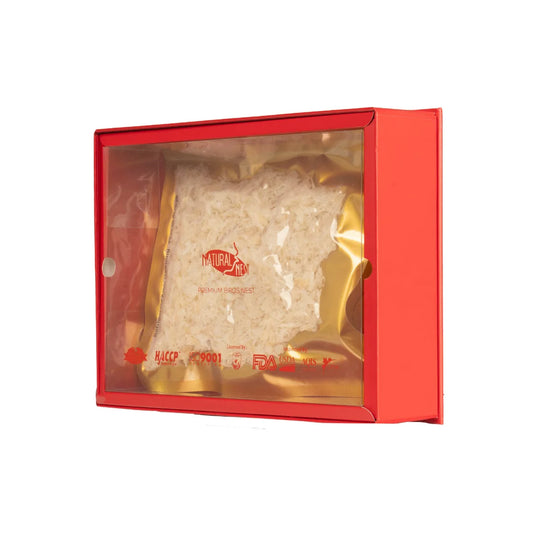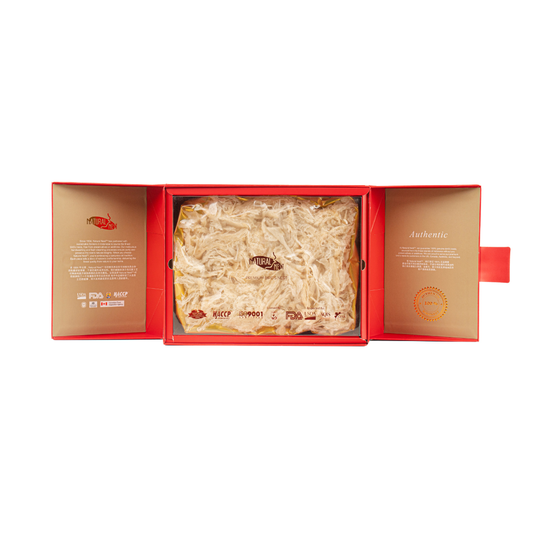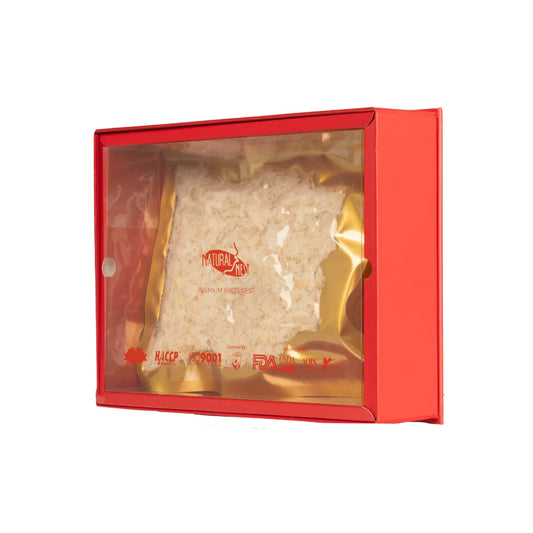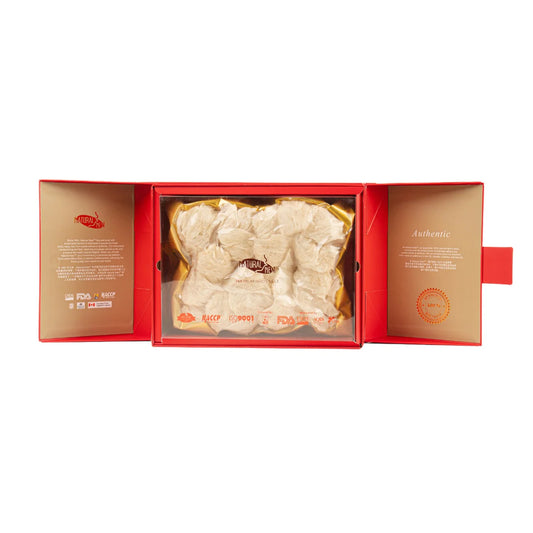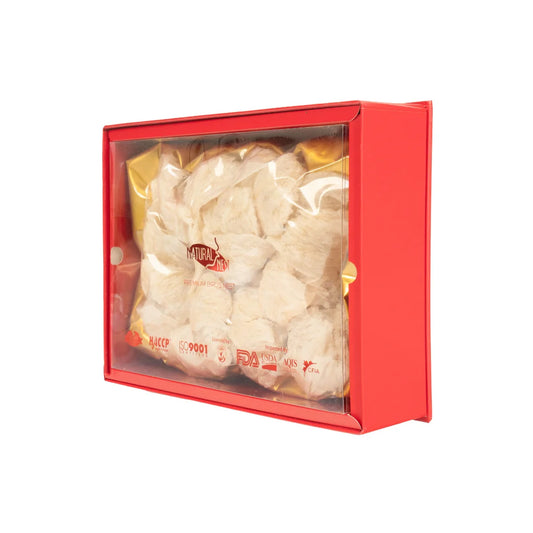Edible bird nests have held a place of great importance in Traditional Chinese Medicine (TCM) for over 1,000 years. Revered as a precious health tonic, bird nests are often referred to as "Caviar of the East" due to their rarity and incredible benefits. Let’s explore their role in TCM and why they continue to be a prized ingredient in holistic health practices.
Historical Significance The use of bird nests in TCM dates back to the Tang and Ming Dynasties, where they were consumed by royalty and the elite to promote vitality and longevity. Ancient Chinese texts describe bird nests as a powerful remedy for boosting energy, improving skin health, and enhancing overall vitality. Their high value made them a luxurious symbol of wealth and health.
Key Properties in TCM In TCM, bird nests are classified as having a neutral nature, meaning they are neither too cooling nor too warming. This makes them suitable for most body types and helps maintain balance within the body. The nests are believed to nourish the lungs, replenish yin energy, and enhance qi (life force energy). These properties make them ideal for restoring harmony and addressing specific health concerns.
Benefits for the Lungs and Respiratory System Bird nests are particularly valued in TCM for their ability to nourish and strengthen the lungs. They are often prescribed to individuals suffering from chronic coughs, asthma, or other respiratory ailments. The natural compounds in bird nests, including glycoproteins, help moisturize the lungs and reduce inflammation, providing relief from respiratory discomfort.
Skin Health and Anti-Aging In TCM, maintaining youthful and radiant skin is linked to the nourishment of internal organs, especially the lungs. Bird nests are believed to support the production of collagen and promote cell regeneration, leading to improved skin elasticity and a reduction in fine lines. This internal nourishment reflects outwardly, contributing to glowing and healthy skin.
Immune System Support Another core benefit of bird nests in TCM is their ability to strengthen the body’s immunity. Their high sialic acid content is thought to enhance the body’s natural defenses, making it more resilient to illnesses. Bird nests are often recommended as a post-illness tonic to speed up recovery and restore strength.
Digestive Health and Yin Nourishment In TCM, bird nests are known to nourish yin energy, which represents coolness and moisture in the body. They are commonly prescribed for individuals experiencing dryness, digestive discomfort, or depleted yin. Bird nests’ easy-to-digest composition makes them suitable for people with sensitive stomachs, providing gentle nourishment and healing.
Modern Applications in TCM Today, bird nests are widely used alongside other TCM remedies to support health and wellness. They are often incorporated into herbal soups or brewed with ingredients like ginseng, goji berries, or rock sugar to enhance their benefits. These combinations create a synergy that aligns with TCM’s holistic approach to health.
Conclusion- Edible bird nests hold a unique place in Traditional Chinese Medicine, offering a range of benefits that align with TCM’s principles of balance and harmony. From supporting respiratory health to enhancing skin vitality and nourishing yin energy, their versatility and efficacy have stood the test of time. Whether consumed as a standalone tonic or in combination with other remedies, bird nests continue to be a treasured ingredient in the pursuit of holistic well-being.
